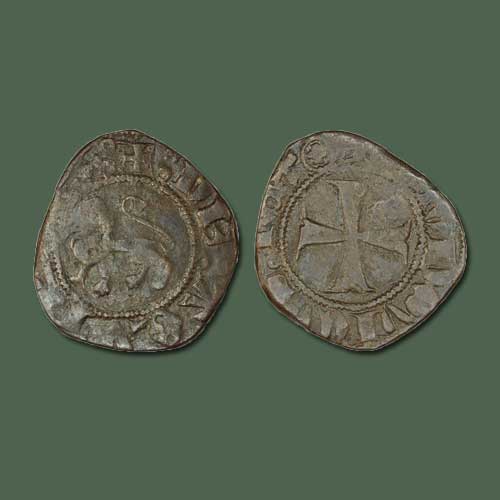Louis II of Anjou
2021-04-29 Thu
Louis II was Duke of Anjou and Count of Provence from 1384 to 1417; he claimed the Kingdom of Naples, but only ruled parts of the kingdom from 1390 to 1399.His father, Louis I of Anjou—the founder of the House of Valois-Anjou—was a younger son of King John II of France and the adopted son of Queen Joanna I of Naples. When his father died during a military campaign in Naples in 1384, Louis II was still a child. He inherited Anjou from his father, but his mother, Marie of Blois, could not convince his uncles, John, Duke of Berry, and Philip II, Duke of Burgundy, to continue her husband's war for Naples. The Provençal nobles and towns refused to acknowledge Louis II as their lawful ruler, but Marie of Blois persuaded them one after another to swear fealty to him between 1385 and 1387.
His cousin, King Charles VI of France decided to support Louis II's bid for Naples in 1389. After Antipope Clement VII crowned him king in Avignon on 1 November 1389, Louis II moved to Naples. His troops could not occupy the whole kingdom, thus it was practically divided between Louis II and his opponent, Ladislaus of Naples. The conflict between Clement VII's successor, Antipope Benedict XIII, and France weakened Louis' position and Ladislaus forced him to leave Naples for Provence in 1399.
The above-shown coin was issued under his reign. The obverse shows the lion facing left while the reverse depicts the cross.
Image Source: https://www.britishmuseum.org/
Latest News
-
Malwa Sultan Mahmud Shah Billon coin
2025-08-26 TueMalwa Sultan Mahmud Shah's billon coins followed three weight standards: 100 rati, 96 rati, and 80 r...
-
Fascinating Archaeological Facts on Postage Stamps - 91
2025-08-23 SatRhinoceros is one of the oldest land mammal species existing in India. There are five species of rhi...
-
Fascinating Archaeological Facts on Postage Stamps - 90
2025-08-23 SatUthiramerur, a Village in Kanchipuram, Tamil Nadu, is notable for its Temple inscriptions that descr...
-
Fascinating Archaeological Facts on Postage Stamps - 89
2025-08-21 ThuThe term “millet” is derived from the Latin word “milum,” which translates to grain. millets...
-
Fascinating Archaeological Facts on Postage Stamps - 88
2025-08-21 ThuChess is one of the most ancient and intellectually stimulating cultural games known to humanity. Th...

